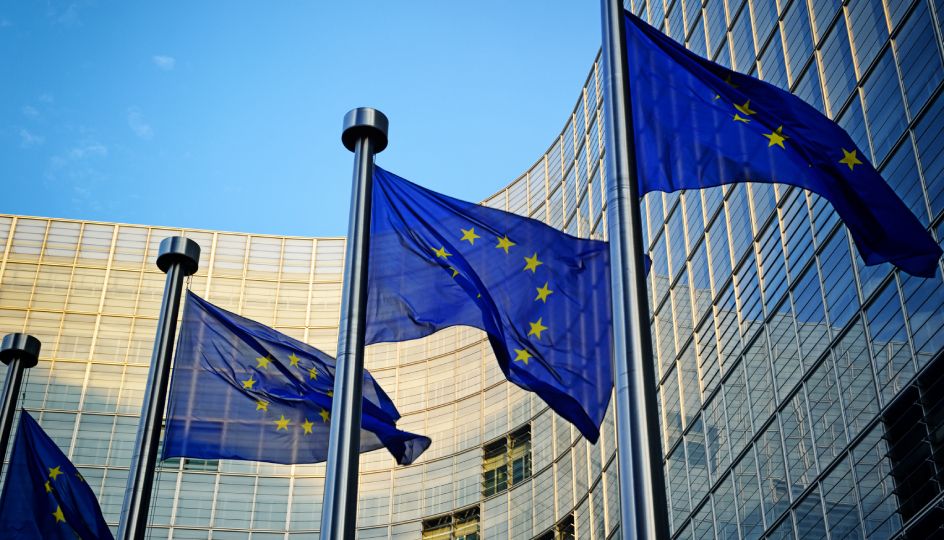Chinese investment in Europe: key info for investors on some of the most attractive markets

For Chinese investors, Europe presents a number of attractive destinations to set up operations or acquire new target entities, as well as markets with which to trade. But while many countries in the continent offer developed economies, political stability and lucrative sectors and industries, there are also some jurisdictional idiosyncrasies, regulatory nuances or barriers to entry to be aware of.
Global investment activity understandably slowed down with the outbreak of the Covid-19 pandemic, as the focus for many businesses shifted to dealing with, or in some cases surviving, this unprecedented situation.
However, the situation is now changing for the better. As countries make progress with vaccination rollout programmes and life for many starts to return to something closer to normality, the outlook for the world economy, and consequently for businesses and investors, is becoming a lot more positive.
This is certainly true in China, where major economic indicators such as consumption and investment are looking increasingly robust, following a period of global uncertainty. With this in mind, businesses will once again start to shift their focus to exploring new expansion and investment opportunities, including overseas.
In particular, Europe will be a region of interest for Chinese investors, offering opportunities in a broad range of sectors and industries. The EU is one of China’s biggest trading partners and the EU-China 2020 Strategic Agenda for Cooperation is seen as central to long-term bilateral relations and improving investment conditions.
We take a look at a number of key European markets to examine what makes them appealing to investors, while also highlighting some factors or regulations to be aware of.
France
France is a popular destination for foreign direct investment and is considered one of the “big three” European recipients of foreign direct investment (FDI) from China, alongside Germany and the UK.
In 2020, Chinese investment accounted for more business activity in France compared to involvement from all other Asian economies. At present, Chinese investment in France totals something in the region of €8.5 billion in FDI stocks, with interests held in approximately 900 French companies, responsible for over 50,000 employees.
In terms of numbers of projects, investors from China have been most active of late in the transport, storage and IT services sectors, followed by automotive and equipment manufacturing. The electrical and computer equipment industries have also seen recent activity.
Investing and doing business in France is not without its complexities, however. There are onerous accounting and tax processes in place, local language requirements for compliance reporting and France’s human resources environment is considered protective and employee-centric. Investors need to be aware of how to manage these compliance obstacles which contribute to France’s ranking as the 2nd most complex place to do business in this year’s Global Business Complexity Index.
Even though France still requires much administrative work to comply with requirements, the country is also encouraging investors through various schemes, such as temporary exemption arrangements for innovative start-ups and new businesses.
The Netherlands
The Netherlands is a country that has interested Chinese investors significantly in recent times; the cumulative value of Chinese FDI here totals some €10.3 billion over the past two decades. This may not come as a surprise given the jurisdiction’s historical reputation as a business-friendly environment.
This jurisdiction remains a good location for operational companies, with relatively convenient conditions for incorporation. For example, a number of Chinese companies active in the automotive industry have set up here in the last year.
While the Netherlands has been traditionally viewed as an ideal environment for foreign enterprises to establish operations, it has recently implemented an Ultimate Beneficial Owner (UBO) register which investors will need to comply with. In addition, new minimum substance requirements came into force earlier this year, which Chinese corporates will have to pay attention to. That being said, this jurisdiction still ranks among the ten least complex in the world to do business, being ranked in 70th place in this year’s Global Business Complexity Index.
The Netherlands offers a very stable business environment and internationally focused infrastructure for investors.
Luxembourg
Best known for its attractive regime for funds and holding structures, Luxembourg has traditionally been viewed as an entry point to the rest of Europe for Chinese businesses. However, it has recently seen a decline in Chinese inbound FDI as a consequence of the global pandemic. With a slowdown in global M&A impacting holding structures, Chinese companies have remained conservative here over the past year. That being said, Goldman Sachs has commented that the number of M&A deals in the preparation stage in Europe has exceeded the number of projects at the same stage following the 2008 financial crisis. With the introduction of the new substance requirement in the Netherlands, Luxembourg will be a more preferential destination for M&A transactions structuring.
In addition to holding structures and M&A activity, Chinese financial institutions have previously held an interest in Luxembourg. Brexit has also had a knock-on impact for activities here, in that Chinese financial institutions and payment companies with hubs in the UK no longer hold valid licences to transact freely with neighbouring European Union counterparts, such as Luxembourg.
Being the principal financial centre in Europe, the Luxembourg Government values being perceived as a leader in green finance; some green financial products has been successfully explored by Chinese financial institutions in Luxembourg.
Germany
Germany is one of the “big three” European economies, along with France and the UK, that historically receives a significant proportion of Chinese investment into the continent. This continued to be the case in 2020, with Germany proving to be the greatest recipient of Chinese FDI, receiving more than half of all capital invested in Europe.
Recognised in some quarters as an unofficial indicator of the health of its economy, the automotive industry in Germany remains strong, and is of particular interest to Chinese parties as an investment opportunity. Similarly, e-commerce is a popular sector which has seen a spate of incorporations by Chinese players over the past year.
However, this previously positive picture may change in the near future. The German government intends to tighten the rules on foreign direct investment control, which is something that Chinese investors will need to pay attention to as it could prove challenging for their planned activities.
United Kingdom
The United Kingdom has historically been one of Europe’s biggest net beneficiaries of Chinese FDI, but this status has been challenged by its recent departure from the European Union. Figures for Chinese FDI across both 2019 and 2020 demonstrate this, with investment here dropping by 77 percent. This can be explained in part by post-Brexit licence complications for financial institutions that had previously used the UK as a base of operations within the EU.
In spite of the reduced FDI here, Chinese investment in the UK remains significant with the country being the third greatest recipient of Chinese investment in 2020, notably in the form of major M&A deals. Efforts are also being made to restore the UK’s attractiveness to outside investors. The UK Government is seeking to distinguish the country as a haven for green investment in Europe, in a bid to set itself apart from its European neighbours.
The UK’s post-Brexit situation could also lead to favourable terms for Chinese investors in the near future. By leaving the EU, the UK finds itself in a position where it needs to reach out independently to trading partners to strike deals and reach new bilateral agreements. At the same time, Chinese companies also need to reconsider their access to the EU, and also back to China, via their UK entities which may need to be relocated to a new jurisdiction within the EU, such as some of those discussed here.
Republic of Ireland
The Republic of Ireland has long been an attractive location for investment within Europe, offering a competitive tax regime that entices corporates to set up shop. This country is recognised as one of the most straightforward jurisdictions in which to do business, ranking in 74th place in TMF Group’s Global Business Complexity Index 2021.
Following Brexit, the Republic of Ireland is now also becoming an increasingly popular choice for businesses and investors seeking to establish a base of operations for financial activities within the EU, of for those in need of an English-speaking jurisdiction within the bloc.
The Republic of Ireland continues to attract investment, whether that be in funds and capital markets or through the establishment of regional headquarters. Factors that make it so attractive include a stable and fair regulatory environment, competitive tax regime and a deep talent pool with language skills.
For Chinese investors, sectors of particular interest include aviation finance and aircraft leasing. Capital markets are also an investment mainstay in the Republic of Ireland, with a long-established industry offering a wealth of local knowledge and talent.
As a member state of the EU, the Republic of Ireland has adopted many compliance initiatives in accordance with European Union directives. Of note for overseas investors are rules around base erosion and profit shifting, as well as legislation around Anti-Money Laundering (AML), which will require vigilance in order to remain compliant.
Taking steps in a new market
Chinese investors seeking to take advantage of opportunities in Europe, will need to be mindful of the need to navigate the jurisdictional complexities of establishing operations, of traversing language barriers to fulfil reporting requirements, and dealing with local cultural and regulatory nuances.
Investors who have identified opportunities in new countries could stand to benefit greatly from enlisting help to ensure that their cross-border investments go smoothly.
Securing the support of a services provider who has a presence in the target country is always a sensible option, to avoid falling foul of unfamiliar, local compliance requirements. Outsourcing certain functions, or taking a unified approach in more than one jurisdiction with an international provider, can help to eliminate the complexities around local rules and requirements, as well as effectively removing language barriers and allowing you to navigate cultural differences.
Why TMF Group?
Our international region China desk has a strong, strategic focus on Chinese business in Europe. Our professional and multilingual team, based across our France, Netherlands, Luxembourg, Germany, UK and Ireland offices, can assist you with establishing structures, incorporating companies and all aspects of entity management. TMF Group also offers a full suite of services related to accounting, tax, HR and payroll, ranging from tax filing and bookkeeping to preparing employment contracts and pay slip preparation.
Our dedicated service team of native Mandarin speakers has a strong track record of innovative collaboration with inbound Chinese investors, and the ability to align with your companies’ practices. We tailor our solutions to your needs, including using communication tools such as WeChat, to enhance and facilitate cooperation.
If you are looking to invest in Europe, or expand your operations in any of the markets mentioned here talk to us.





